Our dedication to Racial Equality and Social Justice (RESJ) spans decades. Learn more about our RESJ Initiative
In Honor of Her Honor
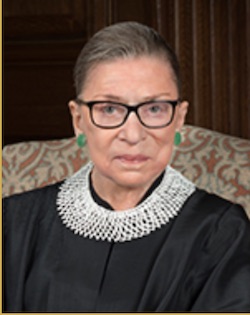 We at Cambridge College extend our heartfelt thanks to Supreme Court Justice Ruth Bader Ginsburg, who passed away on Friday evening, September 18, 2020. Thank you, Justice, for your lifetime of service to our country and its people. Thank you for your courage; for serving as a model of intellect, clarity, and compassion. Your dedication to social justice, equity, women's rights, and your unwavering humanity serve as guiding principles for Cambridge College, and we shall never forget you.
We at Cambridge College extend our heartfelt thanks to Supreme Court Justice Ruth Bader Ginsburg, who passed away on Friday evening, September 18, 2020. Thank you, Justice, for your lifetime of service to our country and its people. Thank you for your courage; for serving as a model of intellect, clarity, and compassion. Your dedication to social justice, equity, women's rights, and your unwavering humanity serve as guiding principles for Cambridge College, and we shall never forget you.
About Ruth Bader Ginsburg
Ruth Bader Ginsburg died on September 18, 2020. The 87-year-old was the second woman to serve on the Supreme Court of the United States.
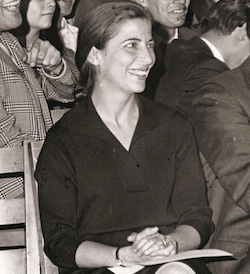 Ginsburg grew up in a low-income, working-class neighborhood in Brooklyn, NY. She graduated from Cornell University in 1954, finishing first in her class. She married Martin Ginsburg nine days after her graduation.
Ginsburg grew up in a low-income, working-class neighborhood in Brooklyn, NY. She graduated from Cornell University in 1954, finishing first in her class. She married Martin Ginsburg nine days after her graduation.
A few years later, after having their first child, Ginsburg enrolled at Harvard where she encountered a very male-dominated, hostile environment. In a class of more than 500, only nine were females – and they were chided by the law school’s dean for taking the places of qualified males. Ruth excelled and became the first female member of the prestigious Harvard Law Review.
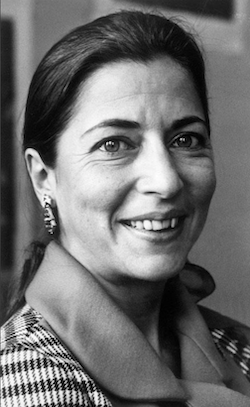
She transferred to Columbia Law School when her husband was offered a position at a New York law firm. She graduated from Columbia tied for first in her class but was unable to find employment as a lawyer due to gender discrimination.
She was eventually offered a clerkship in a U.S. District Court. In 1963, Ginsburg became an assistant professor at Rutgers School of Law where she was asked to accept a low salary because of her husband’s well-paying job.
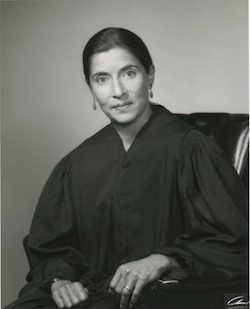
Ginsburg taught a seminar on gender discrimination. She wrote dozens of law review articles and drafted or contributed to many Supreme Court briefs on the issue of gender discrimination. During the 70’s, she served as the director of the Women's Rights Project of the American Civil Liberties Union, for which she argued before the Supreme Court six times, winning five cases.
In 1980 Democratic U.S. President Jimmy Carter appointed Ginsburg to the U.S. Court of Appeals for the District of Columbia Circuit.
Then in 1993, President Bill Clinton selected Ginsburg to replace retiring Justice Byron White on the U.S. Supreme Court.
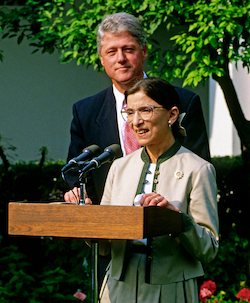
On the high court, Justice Ginsburg was often called on to rule in cases regarding the rights of women and issues of gender equality. Early in her tenure on the Court, Ginsburg wrote the majority’s opinion in United States v. Virginia (1996), which held that the men-only admission policy of a state-run university, the Virginia Military Institute (VMI), violated the equal protection clause.
Rejecting VMI’s contention that its program of military-focused education was unsuitable for women, Ginsburg noted that the program was in fact unsuitable for the vast majority of Virginia college students regardless of gender. “[G]eneralizations about ‘the way women are,’ estimates of what is appropriate for most women, no longer justify denying opportunity to women whose talent and capacity place them outside the average description,” she wrote.
Over the years Justice Ginsburg was embraced by many Americans as a feminist icon and an exemplar of moral courage in the pursuit of social justice. Her life and work were celebrated in books such as the 2015 biography The Notorious RBG, and in the 2018 feature film, On the Basis of Sex, which portrays her early career and the landmark sex discrimination case of Moritz v. Commissioner of Internal Revenue.
Quotes from Ruth Bader Ginsburg
“Fight for the things that you care about. But do it in a way that will lead others to join you.”
"Real change, enduring change, happens one step at a time."
"Don't be distracted by emotions like anger, envy, resentment. These just zap energy and waste time."
“I ask no favor for my sex. All I ask of our brethren is that they take their feet off our necks.”
“I don’t say women’s rights—I say the constitutional principle of the equal citizenship stature of men and women.”
"I would like to be remembered as someone who used whatever talent she had to do her work to the very best of her ability."
"I tell law students… if you are going to be a lawyer and just practice your profession, you have a skill—very much like a plumber. But if you want to be a true professional, you will do something outside yourself… something that makes life a little better for people less fortunate than you."

